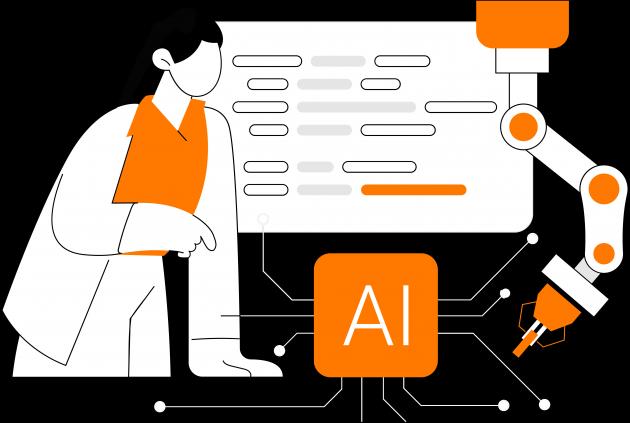Customizing Generative AI to your Company-Specific Data
The true power of Generative AI lies in adapting algorithms to a company's specific data. This strategy diverges from the conventional approach of just developing sophisticated models.
The emergence of Generative AI is creating waves in the corporate arena, offering a transformative impact on innovation and productivity. Despite its potential, integrating this technology into existing business frameworks poses significant challenges. This guide aims to clarify Generative AI for enterprises, spotlighting its benefits and providing strategies for effective deployment. Our objective is to enable businesses to not only comprehend but also effectively utilize Generative AI, converting potential into tangible success. In this guide, for the Generative AI implementation, we cover:
Reading time: 5 minutes
The true power of Generative AI lies in adapting algorithms to a company's specific data. This strategy diverges from the conventional approach of just developing sophisticated models.

Before diving into the world of Generative Artificial Intelligence, it's essential for a business to have a comprehensive understanding of its data landscape. This understanding forms the bedrock upon which AI models are built.
You will need to conduct a comprehensive data audit across all sources, identify the various types and formats of data handled, assess the quality for accuracy and completeness, ensure compliance with data protection regulations and ethics, and plan for future data needs to maintain the relevance and effectiveness of AI models.
Once you have a firm grasp of your data landscape, the next step is to tailor AI models to meet your specific business needs. This process involves several key steps:
To tailor AI models for your business, first define clear objectives for what you want the AI to achieve, then select the most suitable algorithms based on your data and goals, train these models using your unique dataset, continuously refine them through iterative development, and seamlessly integrate them into your existing business processes for optimal enhancement and efficiency.
In an era where Generative AI is reshaping industries, upskilling your workforce is vital. Implement specialized training programs in AI and data science, including machine learning, data analysis, and programming. Incorporate hands-on workshops to provide practical experience and promote a culture of continuous learning with webinars and online courses.
Beyond technical training, spreading AI knowledge throughout the company is crucial. Educate all employees on AI fundamentals and its business applications, tailor training to specific roles, and encourage collaboration between different departments. Leadership should actively promote AI education and integrate it into business strategies.
Access the Whitepaper on Generative AI
Robust Data Governance Frameworks are essential for a successful generative AI implementation (AI deployment), involving well-defined policies and procedures to manage data effectively, ensuring organization, accuracy, security, and compliance with legal and ethical standards.
Another critical aspect of leveraging AI effectively is prioritizing Data Integrity. This involves conducting regular audits and performing rigorous quality checks to maintain high data standards. Data integrity is the foundation upon which reliable AI outcomes are built. Regular monitoring and validation processes help in identifying and rectifying inaccuracies, inconsistencies, or any form of corruption in the data.
High-quality data is synonymous with more accurate, reliable, and trustworthy AI outcomes, which is essential for businesses looking to gain a competitive edge through AI-driven solutions.
Data literacy is becoming increasingly important in the AI-driven corporate world. All employees, regardless of their role, should understand the value and purpose of data. This comprehension is key to supporting strategic decisions and maintaining the integrity and quality of data across the organization.
Concretely companies have to encourage a culture where data is valued and understood across all organizational levels, on the training side, companies can offer workshops and resources that help employees understand how to interpret data and apply insights in their decision-making processes.

Implementing generative AI is not without its hurdles. Internally, companies must navigate cultural shifts, strategic realignments, and infrastructure upgrades.
Externally, factors like evolving technology trends, legal directives, and ethical considerations play a significant role. A holistic approach that addresses these multifaceted challenges is essential for successful AI integration.

In the realm of generative AI, managing risk involves thorough documentation and compliance with relevant regulations and standards. Understanding and categorizing AI risks is crucial for businesses to deploy these technologies responsibly and ethically.
Embracing generative AI in business requires a multifaceted approach. By focusing on custom AI solutions tailored to specific business needs, enhancing workforce capabilities, enforcing strong data governance, and managing risks, companies can successfully harness the power of AI. This strategic journey, though challenging, opens doors to innovation and competitive advantage in the AI-driven business era.
At Orange Business, within Digital Services business line, we're actively preparing to incorporate AI solutions into our clients' operations. Through our consulting and implementation services, we help businesses harness the power of AI to drive innovation and growth. Contact us for more information.
